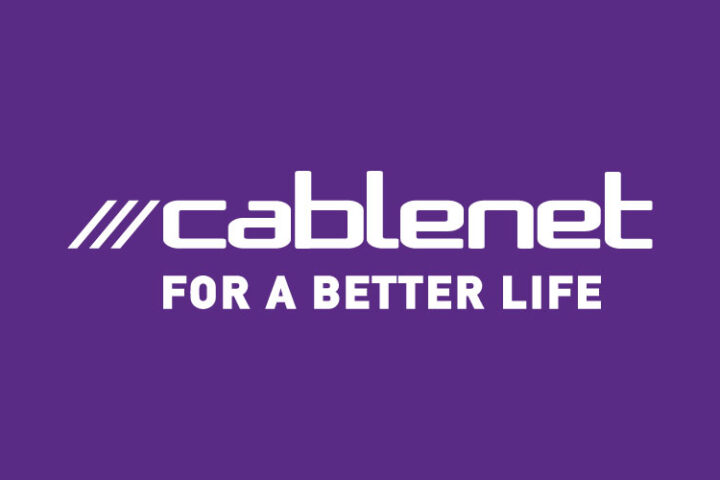While EU member states are completing their fast internet connection targets set by the bloc, Cyprus is nowhere near coming close to them.
EU targets foresee that more than 50% of households should be connected with Next Generation Networks by 2020. Connection to a Next Generation Network would see users surfing at speeds of at least 100 Mbps.
Despite improvements, 76.6% of households in Cyprus have yet to be connected to a network with speeds higher than 30 Mbps.
The Electronic Communications Commissioner’s office said according to their survey for 2019, a disappointingly high 26.6% of the population has a connection speed between 2-10 Mbps.
Businesses in Cyprus are in the process of digitisation and are now also using social media, says Cystat.
However, the percentage of companies with fast internet connections is disappointing.
In large enterprises, this figure reached 78.9%, in medium enterprises 64.8% and small enterprises 51.4%.
As far as speed is concerned, the majority of businesses (33.9%) in Cyprus had a maximum offered data transfer rate of between 10 Mbps and 30 Mbps.
The percentage of businesses with a maximum data transfer rate of between 2 Mbps and 10 Mbps fell to 9.3% this year compared to 19.8% in 2018.
Internet speeds above 30 Mbps increased from 35.4 % in 2018 to 49.3% in 2019.
Companies with a connection of at least 100 Mbps rose to 17.01% in 2019 from 10% the previous year but 6.6% of businesses do not have an internet connection at all.
EU plans foresee that by 2025 access to download speeds of at least 100 Mbps should be upgraded to 1 Gbps for all European households.
The European Commission adopted a strategy on Connectivity for a European Gigabit Society in September 2016.
This strategy addresses the availability and take-up of very high capacity networks, which will enable the widespread use of new products, services and applications in the Digital Single Market.
Electronic Communications Commissioner George Michaelides said the main reason for households not having fast internet is the lack of infrastructure.
He told the Financial Mirror that infrastructure for faster internet connections needs to pick up speed.
“The Cyprus Telecommunications Authority (CyTA) has to pick up speed and install their optic fibre network as soon as possible to lay the groundwork for providers to offer faster connections,” said Michaelides.
He noted that with completion of the project, providers will be able to utilise the network to offer faster connections without additional cost.
Asked whether local consumers would be interested to install a faster connection, taking in consideration that Cypriots tend to use the internet mostly for communicating through messaging, voice and video calls, Michaelides said the question is like asking which came first, the chicken or the egg.
“Certainly, Cypriots consumers’ lack of digital skills comes in to play, which we plan to address with promoting digital skills through the education system. This, however, will take time.”
Michaelides noted, however, that if providers are in a position to offer higher speeds, then companies will seize the opportunity to offer more services and new tech-related products.
Firms not using technology
While encouraging, not enough households and businesses have recorded an upward trend in the use of information and communication technologies, according to surveys conducted by the Cyprus Statistical Services.
In 2019, more than half of businesses (53.6%) with 10 or more employees used applications that allow audio-visual calls over the Internet for professional purposes.
However, companies do not seem to be making the most of capabilities offered by online commerce.
According to the report in 2018, only 13.9% of enterprises had received orders via computer networks (excluding manually typed e-mails) compared to 14.2% in 2017.
Some 13% of enterprises received orders via websites or “apps” in 2017 it was 13,3%.
Another Cystat survey on the usage of information and communication technologies in households showed Cypriot consumers were not keen online shoppers but the trend was growing.
The percentage of 16-74 year-olds making online orders during the first quarter of 2019 significantly increased to 36.2% from 23.3% in 2018.
The most popular categories of goods or services ordered online were clothes or sports goods (66.2%), travel arrangements such as transport tickets, car hiring (54.6%) and holiday accommodation (51.7%).
The survey showed that 84.6% of those aged 16-74 bought or ordered goods and services from preferred sellers in EU countries, 44.2% bought from sellers from the rest of the world and 45.1% bought from sellers in Cyprus.
Cypriots prefer to use the internet for instant messaging (88.6%), telephone calls over the internet/video calls (via webcam) (84.0%), social networks (83.3%), search for information about goods and services (83.2%) and reading news related articles (81.9%).










